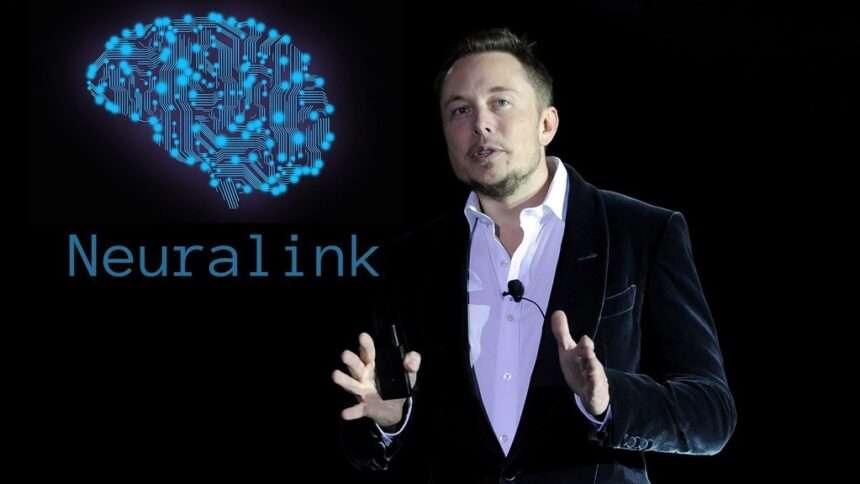In a groundbreaking milestone for neurotechnology, Elon Musk’s Neuralink has revealed the first patient to undergo a brain chip implant. This remarkable achievement marks a significant leap forward in the realm of Brain-Computer Interfaces (BCIs), promising revolutionary possibilities for individuals with neurological conditions and beyond.
The patient, a quadriplegic (paralysis below the neck that affects all of a person’s limbs) individual, was chosen as the inaugural recipient of Neuralink’s cutting-edge brain implant. Through a meticulous surgical procedure, Neuralink’s team of experts successfully implanted the tiny, flexible electrode threads directly into the patient’s brain. These threads, thinner than a human hair, are designed to record and stimulate neural activity with unprecedented precision.
The implications of this technological feat are profound. For individuals like the patient, who have lost the ability to move or communicate due to spinal cord injuries or neurological disorders, Neuralink’s brain chip offers newfound hope. By decoding neural signals and translating them into commands, the implant has the potential to restore mobility and independence to those who once thought it impossible.

The demonstration of the patient playing chess using telepathy serves as a testament to the transformative power of Neuralink’s brain chip. By simply harnessing the power of their thoughts, the patient was able to manipulate a computer cursor with unprecedented accuracy and fluidity.
This pivotal moment signifies a major milestone in Neuralink’s journey towards enhancing human capabilities and addressing neurological disorders. Neuralink integrates small implants into the brain’s intricate nerve networks, allowing individuals to communicate directly with machines. This communication occurs solely through the power of thought, eliminating the need for physical interaction with devices.
Related: Apple in Talks with Google for Gemini AI: A Game-Changer for iPhones
The event garnered widespread attention from tech enthusiasts and medical professionals alike, heralding a new era of possibilities in the field of neurotechnology. With this, Neuralink opens the door to a future where individuals can communicate directly with machines using nothing but their thoughts. With potential applications ranging from restoring mobility for those with paralysis to unlocking new avenues for human-computer interaction, Neuralink’s achievement heralds a promising future for humanity.
However, amidst the excitement, questions regarding the ethical implications and potential risks associated with brain implants loom large. As Neuralink continues to push the boundaries of innovation, it becomes imperative to address concerns surrounding privacy, security, and the long-term effects of neural augmentation.
Elon Musk founded the company with the ambitious goal of enhancing human capabilities and mitigating the risks posed by advancing AI technology. With each milestone achieved, Neuralink moves closer to realizing this vision of a symbiotic relationship between humans and AI.
As Neuralink pushes the limits of what can be achieved, one thing is clear: the future of human potential is incredibly promising. With Neuralink’s each new breakthrough, Elon Musk’s dream of a world where humans and machines unite becomes more attainable. By revealing their first human trial participant, Neuralink has taken a huge stride toward turning this vision into a life-changing reality.









